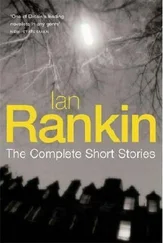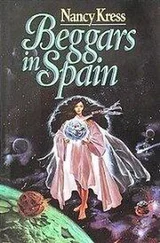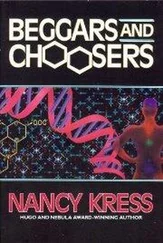Gohar’s amazement was all the deeper since he had thought for a long time that nothing could surprise him. To be jealous of a basket case! Really, the possessive frenzy of women knew no limits. Gohar was grateful to women because of the enormous sum of stupidity that they brought to human relations. They were capable of making a jealous scene with a donkey, for no better reason than to make themselves interesting.
He was beginning to feel a lively interest in his new neighbors. Despite its sordid and pitiful side, this family spat opened incomparable perspectives on humanity to him. What a godsend! He rubbed his hands, blessing the miraculous accident that made him witness to the somber mystery of a couple without having to leave his room. He wouldn’t have traded his place for all the pleasures of creation.
The fraud was so obvious, so universal, that anyone, even a moron, could have detected it without effort. Gohar was still indignant at his own blindness. It had taken him many years, the monotony of an entire life devoted to study, before he judged the true worth of his teaching: a monumental swindle. For more than twenty years he had taught wicked nonsense, subjecting young minds to the yoke of an erroneous, woolly philosophy. How could he have taken himself seriously? Had he not understood what he read? Hadn’t his lectures ever struck him as being full of impudent hypocrisy? What an inconceivable failing. Yet everything should have put him on guard. The least history text, ancient or modern, that he had explicated for his students’ comprehension, overflowed with a million lies. History! Granted, you could misrepresent history. But geography! How could you lie about geography? Well, they had managed to pervert the harmony of the globe by tracing on it borders so fantastic and arbitrary that they changed from one year to another. What especially astounded Gohar was that he had never used his introductory remarks to alert his students to these changes. As if they were a matter of course; as if an official lie were of necessity true.
Such an accumulation of lies could only give birth to complete confusion. And the result was anguish in proportion to the world. Gohar now knew that this anguish was not metaphysical. He knew that it was not an inevitability of the human condition but that it was provoked by a deliberate will, the will of certain powers that had always fought against lucidity and simple reason. These powers considered straightforward ideas their deadliest enemies because they — the powers — could prosper only in obscurantism and chaos! They struggled with all their might to present facts under the most contradictory appearances, those most likely to support the notion of an absurd universe, with the sole aim of perpetuating their domination. Gohar rebelled with all of his soul against the concept of an absurd universe. Indeed, it was under the cloak of this so-called absurdity of the world that all crimes were perpetrated. The universe was not absurd; it was simply ruled by the most abominable gang of scoundrels that had ever soiled the surface of the planet. Actually, this world was cruelly simple, but the great thinkers to whom had fallen the task of explaining it to the uninitiated could not bring themselves to accept this for fear of being scorned as simpleminded. Besides, one ran too great a risk trying to explain things in a simple, objective manner. Unfortunate precedents showed that men had been sentenced to torture for having suggested an honest, rational explanation of certain phenomena. These precedents had served their purpose; they had had a salutary effect on later generations. No one had the courage to express clear, precise ideas anymore. Abstruse thought had become the only safeguard against tyranny.
It was not his thirst for martyrdom that had driven Gohar to renounce the errors of his long past. He had not left the university where he taught and his bourgeois apartment in the European quarter with any intention of propagating a new doctrine. He saw himself as neither a reformer nor a prophet. He had simply fled from the anguish that oppressed him more and more each day. This anguish had washed over entire continents. Where would it stop? Here it was now, battering with its devastating waves the banks of this islet of peace where Gohar had found refuge. He wondered how long the native quarter would resist this poisoned wind. For years, no doubt, perhaps for a whole century. To be illiterate! What an opportunity to survive in a world doomed to massacre! Gohar had arrived at this fundamental conclusion: bloodthirsty power had no hold on individuals who didn’t read the newspapers. Anguish could not reach these people. Miraculously, the native quarter was the only inviolate place in the country where a healthy life animated by simple reason flourished. Everywhere else the most unbelievable madness reigned. However, all danger of contagion had not been expelled: there was the radio. The invention of the radio seemed to Gohar the worst manifestation of the devil. The ravages of this little box that could be seen everywhere seemed to him more destructive than all of the explosives combined.
It was a long time before he realized that silence now reigned in the next flat. He was disappointed, irritated almost. He listened, straining for the slightest sound, anxious to know how the quarrel had ended. He had gained one thing at any rate: what was taking place in the next room was far more instructive than all he had taught for years. That jealous scene proclaimed an undeniable truth: the primacy of the male. Despite his mutilations, the man with no limbs had managed to inspire passion, to give birth to carnal desire by nothing but his masculine presence. Nothing but his sex organ! But the hope of the entire world was contained in that sex organ.
The candle flame was about to die, then it flickered back to life and lit the bareness of the room with new light. Gohar blinked, looked around as if he had just awakened, and once again admired the poverty of his place. No trace of the great shipwreck remained. Only the old newspapers that served as his mattress had suffered from the incident; they were now just a heap of dirty, wet paper. He had not thought yet of replacing them with others. He promised himself that next time he would remember to ask for some from El Kordi, his only acquaintance who bought the paper.
It seemed strange to worry about the arrangement of his bed, as if nothing had changed, as if there had not been the young prostitute’s murder. Did that change anything, fundamentally? After all, it had only been an accident. He wondered what would have become of him, and what his behavior would have been, if he had committed this crime in the distant past when he was stuck in honors and respectability! Most certainly he would have considered himself a monster and would have let himself be consumed with remorse, while at present, nothing had any importance. Even a crime left him indifferent. Wasn’t this appreciable progress, a sign that he was on the right track? This murder had cut the last bonds that still attached him to his past lies. Happy deliverance! He was no longer a slave to ridiculous pangs of conscience. His newly acquired certainty that all tragedy was laughable prevented him from condemning his act. Quite simply, he declined to dramatize things.
In the next flat, the man again began to complain; he demanded his food in a more and more tearful tone. But the woman’s voice was no longer to be heard. What was she doing? Gohar imagined her busy eating in the face of her husband reduced to powerlessness.
He gave a start: someone had just knocked at his door.
“Who’s there?”
“It’s me, Master.”
It was Yeghen’s voice. Even through the door, he felt his gaiety.
“Enter, my son. Welcome!”
Yeghen half opened the door, stuck his head through first, then his whole body, turning around in a skillful ballet movement. Advancing toward Gohar, he bowed to the ground, straightened up, bowed again two or three times, then stood still, as if waiting for an order. There was something besides mere clowning around in his greeting. One felt that Yeghen actually put respect and seriousness into it, but Gohar did not notice this nuance. Yeghen’s buffoonery always amused him; he was used to it.
Читать дальше












